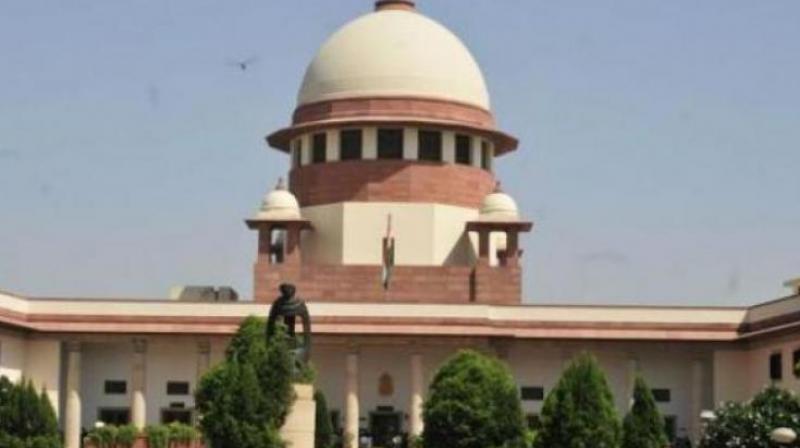Curb social media misuse: Supreme Court
The Madras HC expanded the scope to include sharing of information.

New Delhi: The Supreme Court on Tuesday asked the Centre to state in three we-eks the time it needed to put in place rules to regulate and make accountable social media platform, so as to address state security concerns, individuals’ reputations and other misuse.
Seeking a response from the information technology ministry on the time-frame for the rules that would obligate social media intermediaries to co-operate with investigating agencies in cracking cybercrime, a bench of Justices Deepak Gupta and Aniruddha Bose said the judiciary was not equipped to deal with curbing the misuse of platforms like WhatsApp. “I don’t think that the High Court or we can decide this issue here. The government and the IT ministry alone can do it,” said Justice Gupta as senior counsel Mukul Rohatgi and Kapil Sibal, appearing for Facebook and Whatsapp, urged the court to transfer to itself all petitions pending before Bombay, Madras and Madhra Pradesh High Courts.
Attorney General K.K. Venugopal appearing for TN took exception to Mr Rohatgi saying that High Courts can’t decide this issue. He said the Madras High Court should decide the matter before it concerning social media, which would provide the benefit of a single judgment.
Mr Sibal appeared to agree with the bench to let the Centre decide the issue. The issue involved tracing the person originating a post targeting national security, tarnishing the reputation of an individual and disturbing the peace. The bench was not impressed when Mr Sibal said that the source of a message could be tracked on FB but not on Whats-app which is encrypted end-to-end. S-G Tushar Mehta, appearing for the Centre, said a post could come from a fake identity so it was necessary to ascertain its source.
“No one can say that there is no technology by which the originator of the post (being tracked by the investigating agencies) could not be traced,” said Justice Gupta. He felt social media intermediaries could not claim a lack technology to trace fake news or originator of a message.
While safeguarding privacy was important, the bench favoured framing of “strict rules” to protect national security and prevent the misuse of intermediaries.
Pointing to the “dangerous limits” that technology has already crossed, Justice Gupta said, “I was thinking of giving up my smart phone and going back to old ways.”
He recalled that “with little help, I could have purchased an AK-47 on the Dark Web in just five minutes. Earlier I was happy in ignorance, now I’m worried.”
The Madras High Court, while “effectively abandoning” the prayer for linking of social media platforms with Aadhaar — in the light of top court’s verdict upholding the right to privacy as fundamental right — expanded the scope of the matter to include sharing of information for the prevention and detection of crimes, investigation, tracing the originator of fake news, and mob violence in the state. The next hearing is on October 22.
